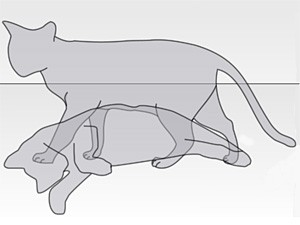Versione in lingua italiana qui.
In the UPC web page, a clear-cut statement is reported:

The question is: where can we find the above statement in the UPCA? To cut a long story short, the answer is: nowhere.
According to Art. 32(1) UPCA, “The [Unified Patent] Court shall have exclusive competence […]” on some actions, including those related to classical European applications and patents.
Nevertheless, according to Art. 83(1), “During a transitional period […] an action for infringement or for revocation of a European patent […] may still be brought before national courts […]“, meaning that the competence of the UPC is “not-quite” exclusive.
The trick is in Art. 83(3) UPCA, providing that “[…] a proprietor of or an applicant for a European patent […] shall have the possibility to opt out from the exclusive competence of the Court […]“.
The question have already arisen: if opting-out for a given patent has the effect that “UPC will have no jurisdiction“, why did the legislator felt the need to specify that opt-out is from “the exclusive competence” of UPC, rather than from mere “competence”?
Some opinions were given on that subject. A Preparatory Committee’s FAQ, still available on the web but – seemingly – not on the UPC web site, reads:
The Preparatory Committee’s view is that an opt-out will remove a patent entirely from the jurisdiction of the UPC. If Article 83(3) allowed for non-exclusive jurisdiction of the UPC, it would be no different to Art 83(1) which already provides for shared jurisdiction of the UPC and national courts.
The first sentence is clear, but unfortunately it is a non binding opinion. Moreover, it was given after the agreement was signed, hence it is not part of the “preparatory works”, that, according to Vienna Convention on the law of treaties, is a possible source of interpretation of a treaty.
As regards the reasoning (second sentence of the citation), that seems relying on Vienna Convention, which is a slippy matter anyway. Even worse, the reasoning is not so convincing after all. In fact, while Art. 83(1) explicitly mentions infringement and revocation actions only, Art. 83(3) has no such a limitation, hence it concerns all actions listed in Art. 32(1). Therefore, even assuming that opt-out concerns the “exclusivity” only, Art. 83(3) brings a different effect as Art. 83(1).
As a consequence, the interpretation of Art. 83(3) remains highly controversial, and we can’t exclude that judges will interpret it narrowly. In the latter case, opt-out would have quite the opposite effect as expected, since, instead of “keeping out” the UPC, it would rather “keep in” national courts in actions other than infringement and revocation, namely: declaration of non-infringement, provisional and protective measures and injunctions, provisional protection, and prior use (and – why not? – actions concerning an EPO’s decision to refuse granting unitary effect). If so, the choice of which court to refer the case to would not be an exclusive prerogative of the patentee, but it would be available to third parties as well.
Nothing can be found in the Rules of Procedure either. On the contrary, RoP 16(1) (infringement action) reads: “The Registry shall as soon as practicable check whether the patent concerned is the subject of an optout […]. In the event of an opt-out the Registry shall as soon as practicable inform the claimant who may withdraw or amend the Statement of claim as appropriate“.
So, UPC has exclusive competence, but not quite, yet the patentee may opt-out from that not-quite exclusive competence, and, even if he subsequently files an infringement action, he may (or may not…) withdraw his statement.
To a reasonable mind, the above interpretation appears nonsense, and probably (hopefully?) it is. Nevertheless, the only reference for a judge are legal sources, not preconceptions nor whishful thinking. Moreover, the only judge that may say the final word is the CJEU. How long will that take? Probably more than 7 years.
The issue is serious, since the only reason for a patentee to choose to opt-out is to ensure that the UPC is out of the game. But, if opt-out is like a “Schrödinger’s cat“, it won’t achieve the aim, and alternative ways ought to be found.
For European applications already filed, and relating patents, we can do little. But for new applications, applicants should take this issue into account when filing, especially SMEs, at least until the matter will be addressed.
Last edited: 08/06/2023
